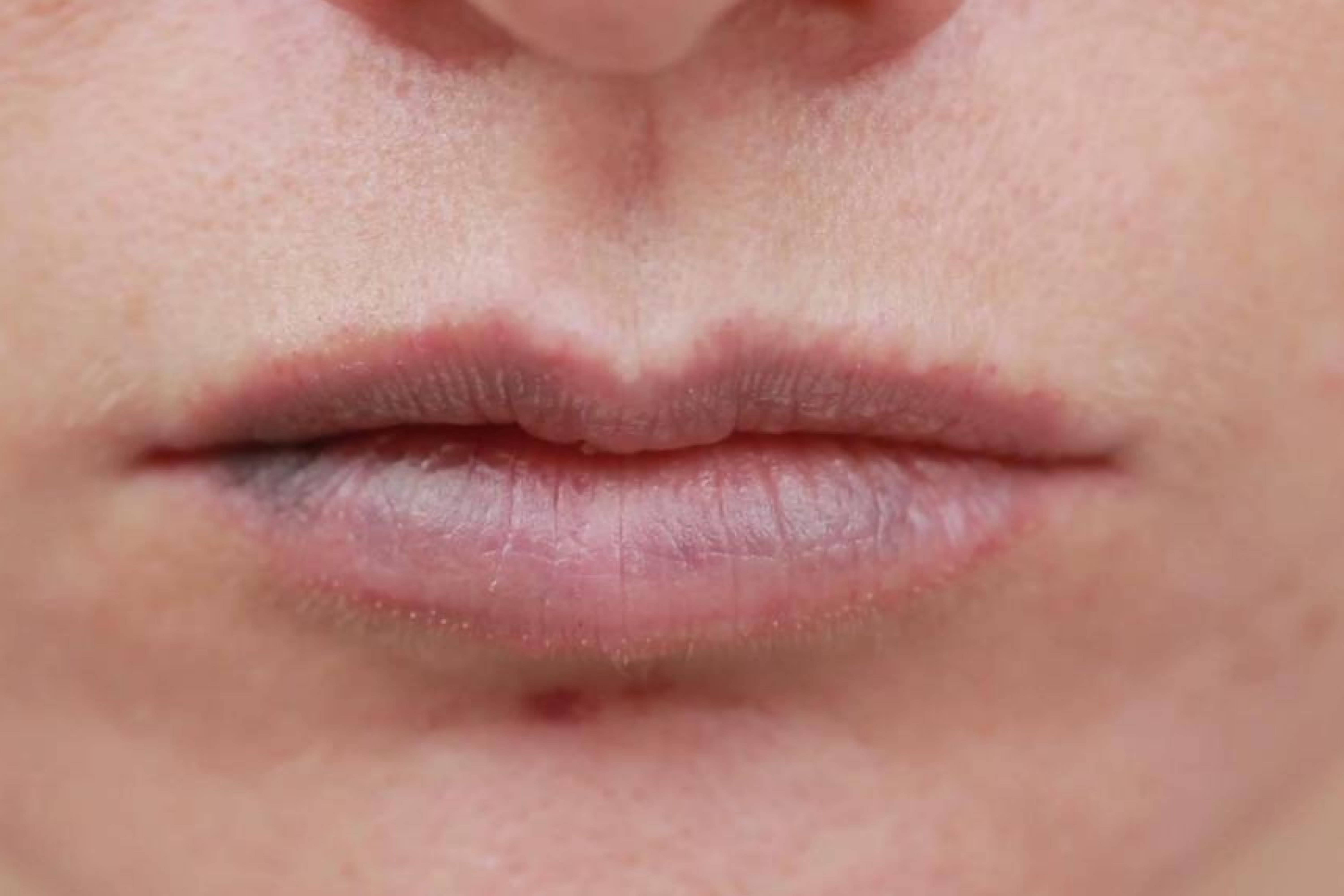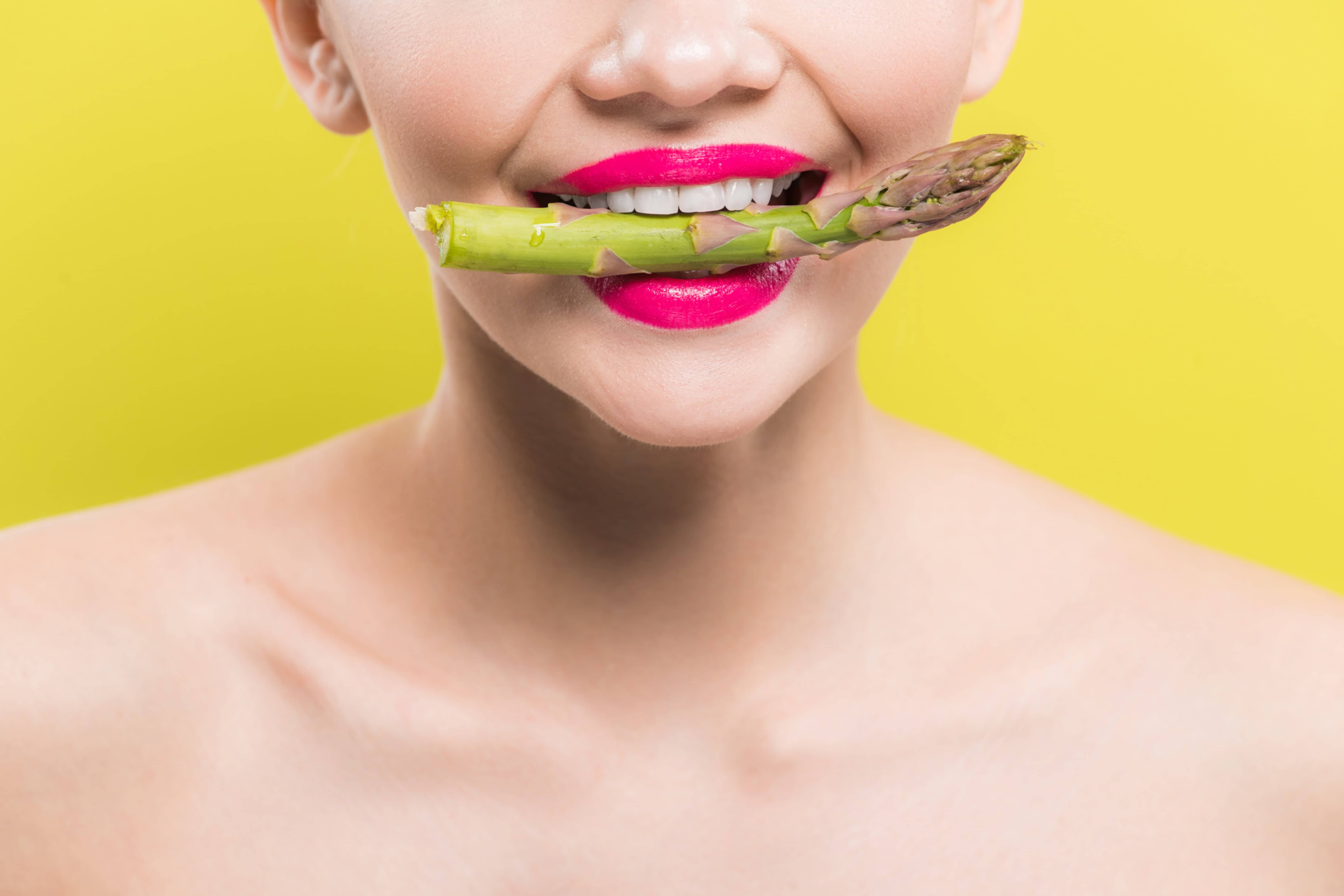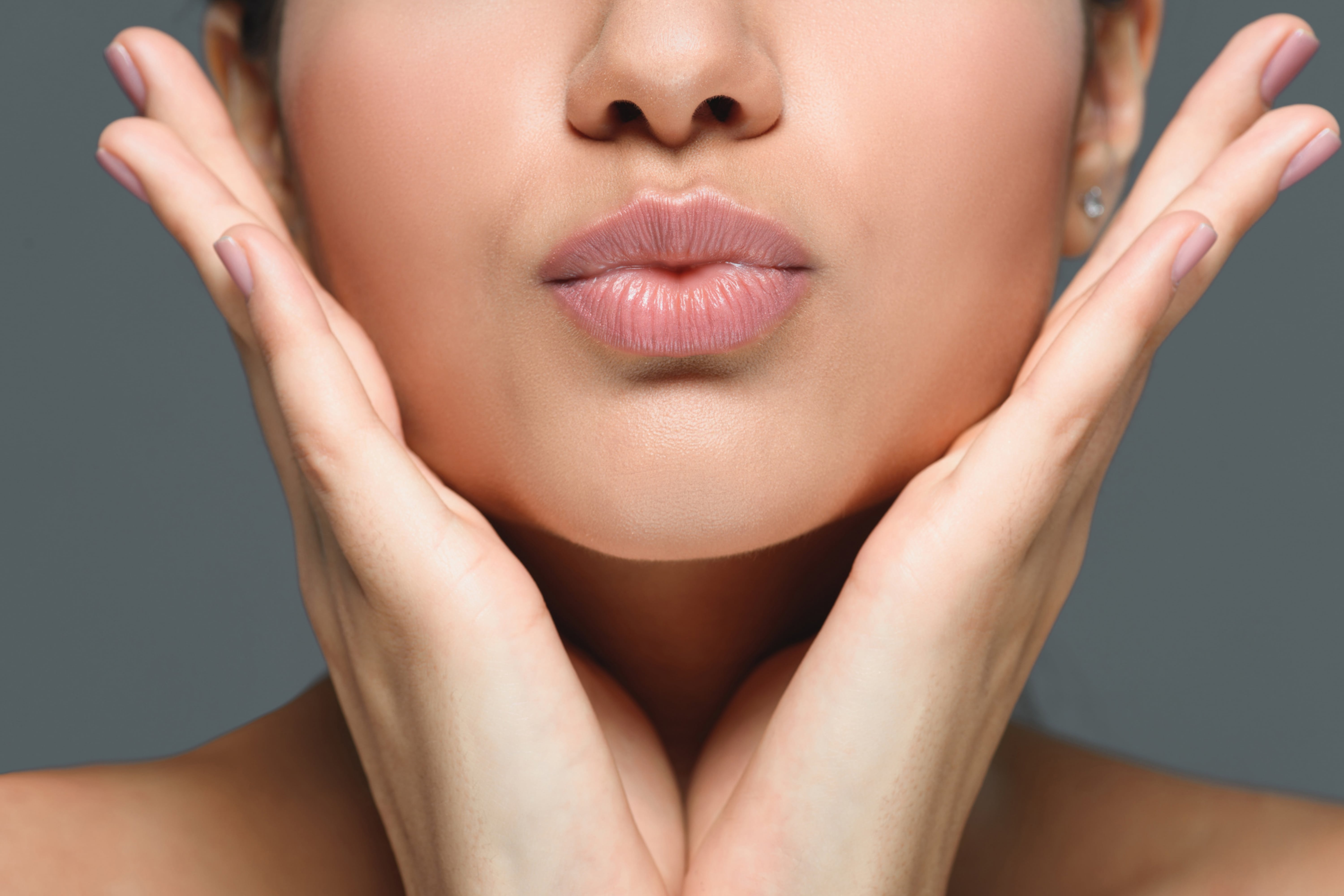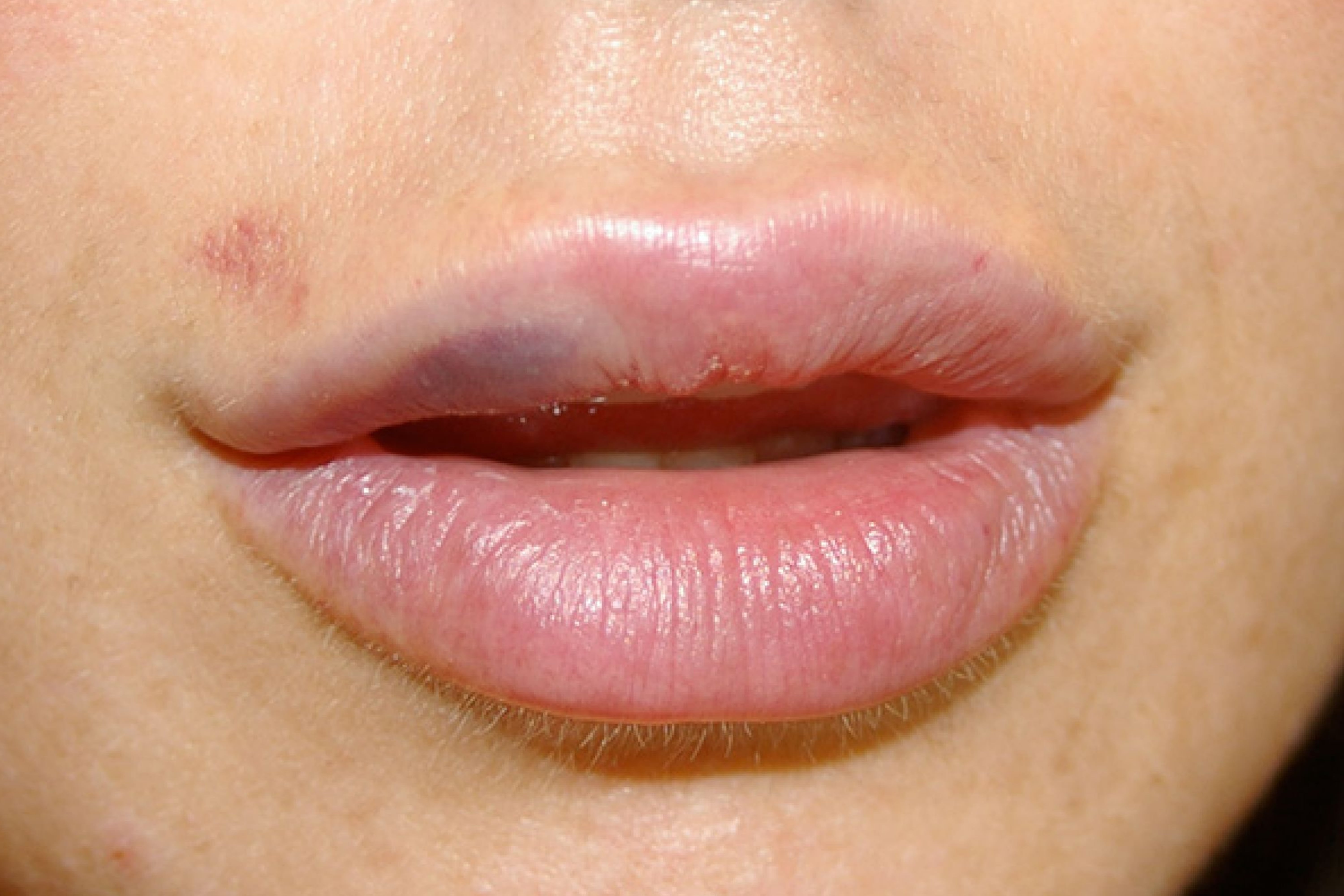A lip-lock with a loved one can stir a lot of emotions. Passion, tenderness, longing, or just sheer joy. However, sometimes, these intimate exchanges can come with a side effect that’s less than romantic – bruised lips. While it might not be the most glamorous topic, understanding why this happens and how to avoid it can go a long way toward ensuring you enjoy your romantic encounters to the fullest
This article will unravel the mystery behind the occurrence of bruised lips from kissing, the scientific perspective, and, most importantly, the strategic ways to prevent it.
The discussion is not only interesting and informative but also presents practical insights. Let’s dive in and separate the myths from the facts.
1. The Science Behind Bruised Lips from Kissing
The lips are one of the most sensitive parts of the body, owing to their high concentration of nerve endings.
Therefore, any activity involving lips, including kissing, can easily lead to bruising if done excessively or with too much force. But what’s the real science behind it?
- Blood Vessels and Capillaries: Lips are heavily vascularized, meaning they have a high density of blood vessels, particularly capillaries. When pressure is applied, such as during a passionate kiss, these vessels can break and leak blood into the surrounding tissues, resulting in a bruise
- Collagen and Elastin: These are two critical components of skin elasticity. Over time, or due to specific activities, they can degrade, making your lips more susceptible to bruising
- Platelets and Clotting: If the body’s clotting mechanism isn’t functioning properly, even a minor injury could lead to bruising. This means some people might naturally be more prone to getting bruised lips from kissing
Preventing bruised lips might be as simple as understanding the body and treating it with the gentle care it deserves. To that end, let’s explore some practical prevention strategies
.
2. Strategies to Prevent Bruised Lips
Preventing bruised lips doesn’t mean that you have to forgo passionate kisses. Instead, it’s about kissing smarter and taking care of your lips before and after the act. Below are some strategies that can help you avoid this inconvenience.
- Control the Pressure: Adjust the intensity of your kisses according to your partner’s comfort level and your own.
- Lip Care: Regular lip care can keep your lips healthy and less prone to bruising. This could include staying hydrated, using lip balm, or exfoliating your lips gently to remove dead skin cells.
- Healthy Diet: Eating foods rich in vitamins C and K can help your skin and blood vessels stay strong, which can make you less prone to bruising
- Medical Check-up: If you bruise easily, it may be worth getting a medical check-up. Some medical conditions can make you more prone to bruising, so it’s good to rule these out
The table below illustrates the benefits of each strategy:
[table id=275 /]
These strategies offer practical solutions and could potentially make a significant difference in your romantic encounters.
3. From Bruised to Beautiful: Lip Care Post-Kissing
If you do end up with bruised lips despite your best efforts, don’t fret. There are ways to help speed up the healing process and reduce the discoloration.
- Ice Pack: An ice pack or cold compress applied to the lips soon after bruising can help reduce swelling and inflammation
- Aloe Vera: Known for its soothing properties, aloe vera can help alleviate the pain and discomfort associated with bruised lips
Lip Balm and Hydration: Keep your lips moisturized to prevent cracking and further damage. Hydration, both topical (like a lip balm) and internal (drinking water), is key
As they say, prevention is better than cure. However, knowing how to handle the situation if it arises gives you the upper hand. With this knowledge, you’re now equipped to enjoy your romantic encounters while caring for your lip health.

4. Unveiling the Myths Surrounding Bruised Lips from Kissing
In the world of love and romance, bruised lips from kissing have generated quite a bit of folklore. So, let’s put our critical thinking caps on and debunk some of the most prevalent myths surrounding this topic.
- Myth 1: Bruised lips only occur from aggressive kissing: While aggressive kissing can indeed lead to bruising, even gentle pressure applied for extended periods can result in bruised lips1. So, it’s not always about the intensity but the duration as well.
- Myth 2: Only thin lips bruise easily: Lip thickness or thinness has little to do with bruising. It’s more about the health and resilience of your skin and the blood vessels underneath
- Myth 3: Bruised lips can be ‘cured’ instantly: While certain remedies can speed up the healing process, there is no instant fix for bruised lips. Healing takes time and largely depends on your body’s natural healing mechanisms
Remember, the world of scientific knowledge and understanding always trumps baseless myths and misconceptions. Let’s look at the comparison table below that further elaborates on these myths and facts:
[table id=276 /]
By keeping these facts in mind, you’ll be better equipped to deal with the realities of bruised lips from kissing.

5. The Connection between Hydration and Lip Health
Hydration plays a critical role in maintaining the overall health of your skin, including your lips. Dehydrated lips can be more susceptible to bruising, as dry, cracked skin lacks the flexibility and resilience of well-hydrated skin. Here are some steps you can take to ensure you’re staying adequately hydrated.
- Drink Enough Water: Aim to drink at least eight 8-ounce glasses of water a day, although the exact amount can vary based on individual needs.
- Hydrating Foods: Include water-rich foods in your diet, such as cucumbers, watermelon, and oranges.
- Avoid Dehydrating Substances: Substances like alcohol and caffeine can dehydrate your body and, subsequently, your lips, so it’s best to consume them in moderation.
- Use a Humidifier: If you live in a dry climate or use air conditioning often, a humidifier can help keep the moisture level in your skin and lips
Hydration is a simple yet crucial step towards healthy lips. The comparison table below showcases the benefits and potential downsides of proper hydration:
[table id=277 /]
By understanding the vital role of hydration, you can better care for your lips and prevent the risk of bruising.
6. The Role of Nutrition in Maintaining Lip Health
Good nutrition can make a world of difference when it comes to maintaining the health and vitality of your lips. Certain vitamins and minerals play a crucial role in supporting the strength of your blood vessels, promoting skin elasticity, and enhancing your body’s healing processes1. Here are some key nutrients and the foods where you can find them
- Vitamin C: Promotes collagen production. Found in oranges, strawberries, bell peppers, and broccoli.
- Vitamin K: Helps in blood clotting and can potentially prevent bruising. Found in green leafy vegetables like spinach and kale.
- Vitamin E: Aids in skin repair. Found in nuts and seeds, spinach, and broccoli.
- Zinc: Plays a role in wound healing. Found in meat, shellfish, legumes, and seeds.
Remember, a well-balanced diet leads to overall health and wellness, which in turn reflects on your skin and lips.
[table id=278 /]
Incorporating these nutrients into your diet can help keep your lips healthy and less prone to bruising.
7. Coping with Repeated Bruising: When to Seek Medical Help
While an occasional bruised lip from kissing might not be a cause for concern, repeated bruising should not be ignored. This could indicate an underlying issue such as a vitamin deficiency, a blood clotting disorder, or a skin condition that requires medical attention.
Here are some signs that it might be time to consult a healthcare professional:
[table id=279 /]
Your health should always be a priority, even when it comes to romantic matters like kissing. Understanding when to seek medical help ensures you keep yourself safe and healthy, so you can continue to enjoy your romantic moments without worry.

8. Top Tips for Quick Healing
The moment you notice your lips bruising, the first step should always be to reduce further damage. Then comes the healing process. Though your body’s natural healing mechanisms will take their course, there are a few steps you can take to help speed up the recovery
- Ice Application: Apply a cold compress or ice wrapped in a cloth to the affected area for about 10 minutes. This can help reduce swelling and pain2.
- Hydrate: Keep your lips moisturized using lip balms or petroleum jelly to avoid dryness and flaking.
- Avoid Further Injury: Try to avoid further kissing or activities that may exacerbate the bruise until it heals.
- Patience: Healing takes time, so be patient and give your lips the rest they need.
Each of these simple yet effective steps contributes towards the quick recovery of your lips, ensuring they return to their natural healthy state as soon as possible.
[table id=280 /]
9. Prevention is Better Than Cure: Tips to Avoid Bruising
The best approach to dealing with bruised lips from kissing is, without a doubt, prevention. Here are some helpful tips to keep your lips safe while you savor the sweetness of a kiss:
- Gentle Kissing: A soft, gentle kiss is less likely to cause bruising compared to an aggressive one.
- Hydrated Lips: Keep your lips moisturized to maintain their elasticity and resilience.
- Healthy Nutrition: A diet rich in vitamins and minerals can help strengthen your skin and blood vessels, reducing the risk of bruising
- Communication: Discuss your comfort levels with your partner. Consent and understanding in a relationship can go a long way in preventing lip bruising.
Let’s summarize these preventive tips in the following table:
[table id=281 /]
Remember, taking preventive measures can ensure your lips stay healthy, and your kisses remain a source of joy, rather than discomfort.

Conclusion
Kissing is a universal language of love, a sublime expression of deep affection between two individuals. However, the experience could leave one with bruised lips, an unexpected side effect.
Bruised lips from kissing are a common but often overlooked issue.
By understanding the science behind it, debunking myths, maintaining good lip care and hydration, adhering to a healthy diet, and knowing when to seek medical help, you can protect your lips and enjoy your romantic encounters.
Armed with scientific knowledge, preventive measures, debunked myths, and the emphasis on hydration, one can avoid such repercussions.
Remember, the art of kissing is not just about the act but also about the aftercare. Keep your lips healthy, hydrated, and ready for that next romantic interlude. Enjoy the magic of kisses without the worry of bruises!
[wp-faq-schema title=”Frequently Asked Questions”]

I frequently get bruised lips after kissing my partner. Is there something wrong with me?
There’s likely nothing wrong with you. However, you may want to consider being more gentle during your kissing sessions. Also, ensuring your lips are well-hydrated and healthy can help prevent bruising.
Can lip balm help prevent bruised lips?
Yes, lip balm can help by keeping your lips hydrated and maintaining their elasticity, which in turn can reduce the risk of bruising. However, it’s also important to be gentle while kissing.
I’ve noticed my lip bruises take quite a long time to heal. Should I be worried?
If your bruises are not improving after two weeks, it might be a good idea to consult with a healthcare professional. Prolonged healing times can sometimes indicate underlying health issues.
Will using ice on a bruised lip help it heal faster?
Applying ice or a cold compress can certainly help reduce the swelling and discomfort associated with a bruised lip. However, it doesn’t necessarily speed up the healing process.
My partner and I enjoy intense kissing sessions, but I don’t want to get bruised lips. What can we do?
Consider discussing your concerns with your partner. Communication is key in any relationship. You can still enjoy intense moments while being mindful and gentle to avoid bruising.
Are there any foods that can help prevent lip bruising?
A diet rich in certain vitamins and minerals can support skin health and resilience. Foods high in vitamin C, vitamin K, vitamin E, and zinc can be particularly beneficial.
Is it safe to kiss someone else if I have a bruised lip?
As long as the bruised lip is not causing significant pain or discomfort, and there are no open wounds, it should be safe. However, it’s recommended to let the bruise heal to avoid further injury.
Are there any specific signs that indicate I should seek medical help for my bruised lips?
If you experience frequent bruising from minor injuries, unexplained bruises, bruises that don’t improve after two weeks or prolonged bleeding from minor wounds, you should consult a healthcare professional.
Can bruised lips become infected?